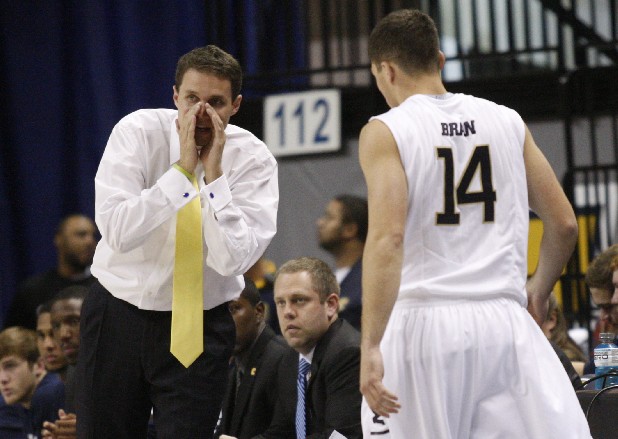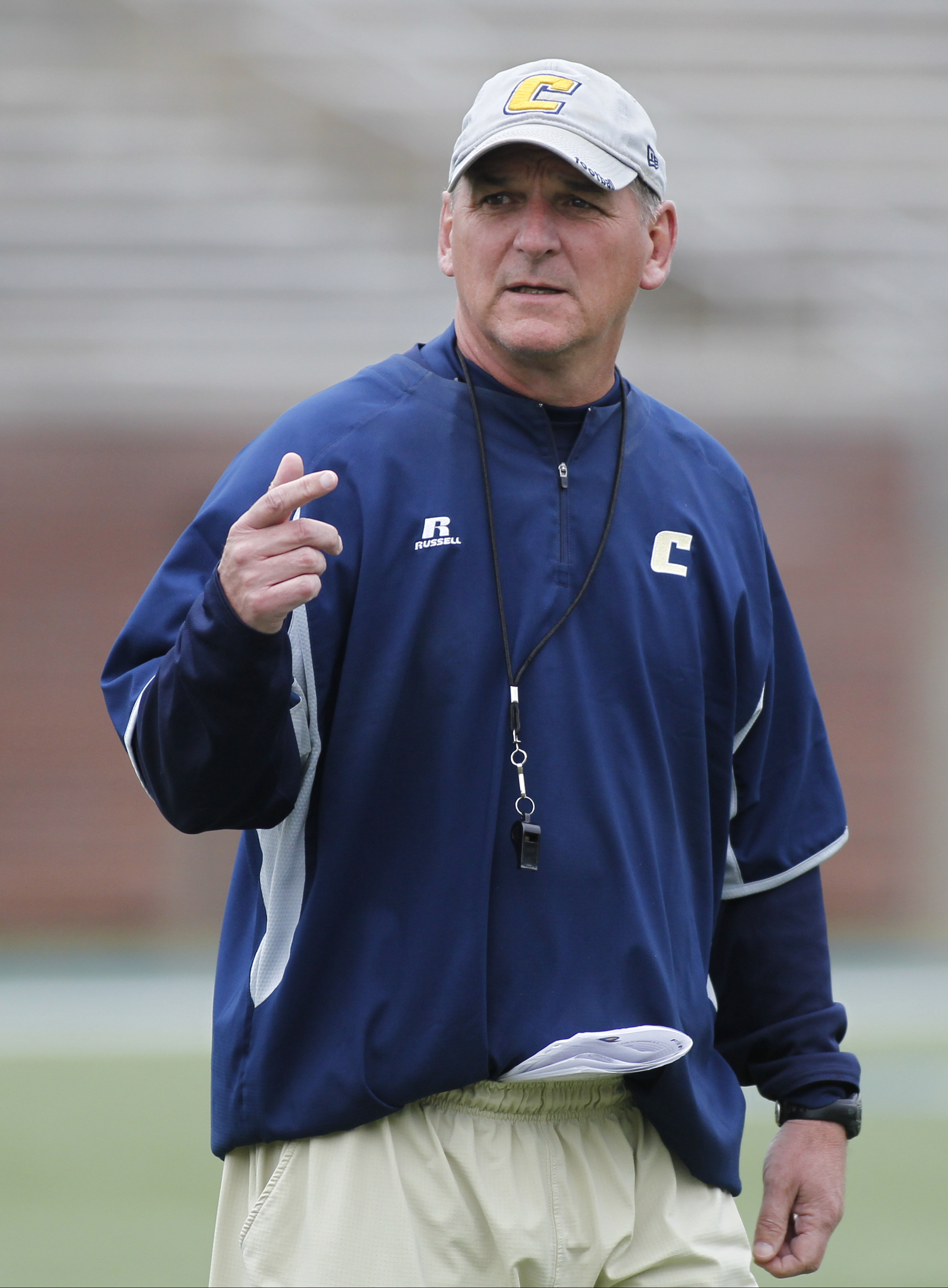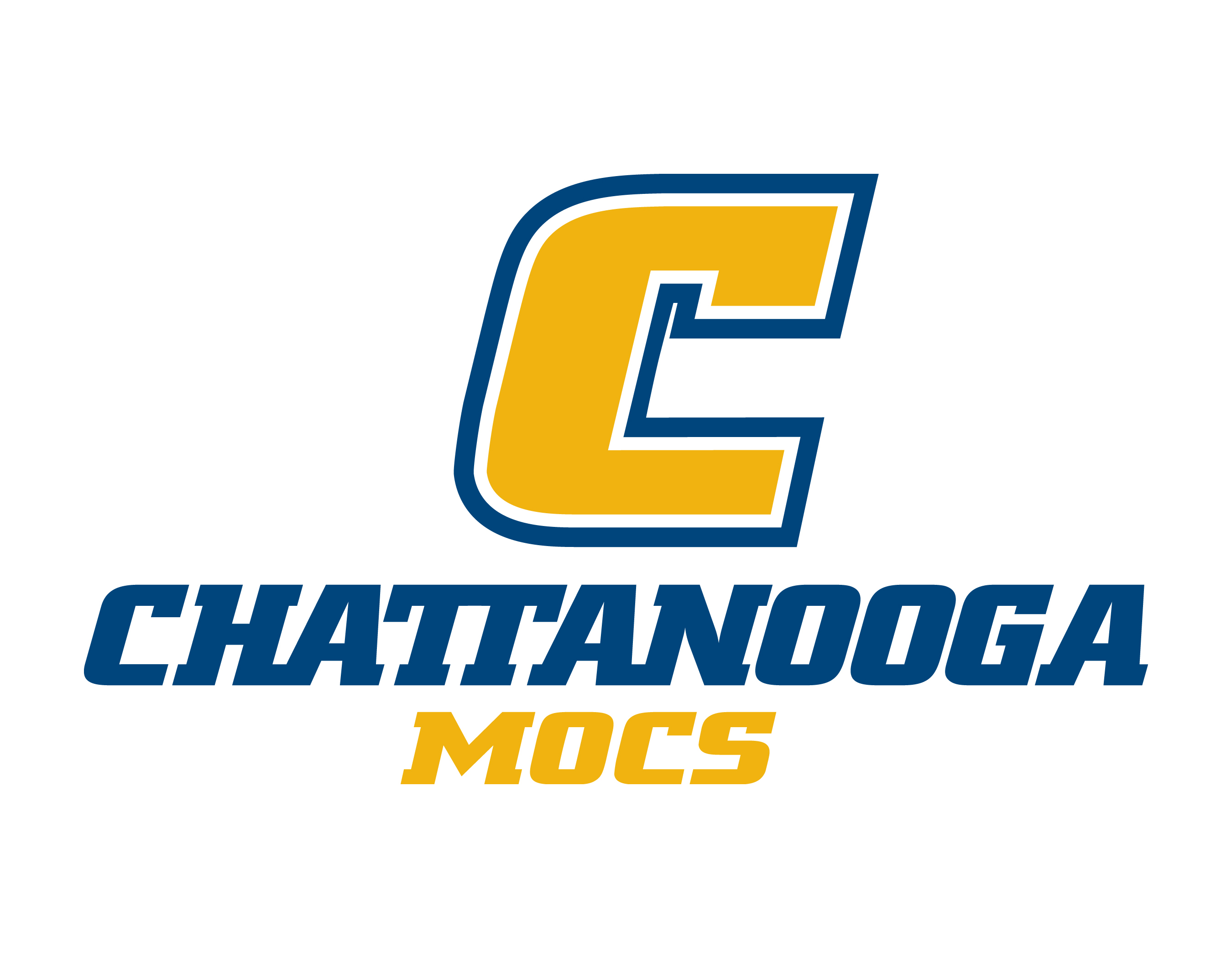Wiedmer: UTC coaches nervous about NCAA's future
Monday, July 7, 2014
Will Wade didn't study with great detail Indiana University's recently announced student-athlete "bill of rights."
On one level, the University of Tennessee at Chattanooga men's basketball coach didn't need to read it closely to support it.
"Anything that helps the kids I'm for," he said a few minutes after he was unceremoniously dunked in a water tank by UTC football coach Russ Huesman during a charity event for St. Jude Children's Research Hospital on Friday. "And four-year scholarships are a good thing."
So, according to the IU 10-point bill of rights, is the lifetime guarantee of a degree for anyone who's been eligible for two years. And the use of a career placement center. And comprehensive medical screenings for both scholarship athletes and walk-ons.
And last but not least -- at least in the eyes of the athletes, we suspect -- an iPad and official IU blazer, which every Cream and Crimson student-athlete surely wants AND needs.
"Of course," Wade added, "the Big Ten [Conference] has buckets of money to fund those things."
Buckets of money are what UTC never has nor will have. The school that once bartered season tickets for copy paper routinely lives on the financial edge regarding its athletic department. And no amount of penny-pinching or fundraising by athletic director David Blackburn is likely to change that.
Or as Huesman noted this past weekend, "The thing that could kill us is cost of attendance or paying players."
The NCAA's Fat-Cat Five -- the Atlantic Coast, Big Ten, Big 12, Pac-12 and Southeastern conferences -- began pushing "cost of attendance" a year or so ago as a way to shame the rest of college athletics into coughing up an extra $2- to $3,000 a year for each athlete.
This isn't about room, board and tuition, which a full scholarship covers. It's about supplies, travel costs to and from home and other outside expenses. The Department of Education actually requires all post-secondary institutions that receive federal financial-aid funds to post that school's cost of attendance in its literature.
But until SEC commissioner Mike Slive began pushing the idea, no one was seriously considering individual schools paying for such things for their athletes, though one wonders how anyone expected the athletes to cover such costs, since outside jobs aren't encouraged and are allowed only up to gross earnings of $2,000 a year.
Yet if Huesman is understandably and rightly concerned about schools outside the Fat-Cat Five offering "cost of attendance" when UTC can't -- "Let's just say Furman announced it was offering cost of attendance. That would really hurt us," he said -- the Mocs' coach long has believed his alma mater's scholarships were already four years in nature, whether officially so or not.
"We renew the [yearly] scholarship as long as they're academically eligible and doing things the right way," Huesman said. "We're never going to take away a scholarship because they wind up not being as good a football player as we thought they would be when we recruited them. We owe them every chance to get a degree."
But many schools do appear to force athletes out. That if you don't perform as planned, they strongly encourage you to move along.
Beyond that has developed a situation, especially in basketball, where a kind of NBA waiver wire seems to have arrived, where all you need to do to transfer is prove the school you're currently attending doesn't have the major you want to pursue (though it apparently did when you signed there) or you have a sick family member, or your dorm doesn't have HD television.
It's not quite as simple as that. You need to have enough credits to graduate to pull the "they don't have my major" scam. And the sick-family-member excuse is supposed to be rigidly researched by the NCAA.
Yet Wade believes change is coming for the good on the transfer front.
"First, I would assume that if you sign a four-year scholarship, it's pretty binding at both ends," he said. "But everybody makes these transfer issues so dramatic. If you break it down, it's really between one and two kids per school per year. Probably less than 1.5 per school. And that's probably about to change. I think every kid will get six years of eligibility. Every transfer will be required to sit out a year. Almost no exceptions."
Yet both Huesman and Wade remain very concerned about the Fat-Cat Five taking their balls and forming a whole new organization. Such a scenario now seems almost certain with football, but with the rest of the Fat-Cat Five's sports remaining under the current NCAA umbrella. But what if that changes? What if they pull away in all sports, which would wipe out everyone else's NCAA tournament money, which is pretty much what the NCAA pays all its bills with?
"I hope we can still play those schools once a year," said Huesman, who'll face Tennessee this October. "Our kids really look forward to that. If they did away with that, that would hurt."
Added Wade: "I wasn't concerned at all [about a complete breakaway] six months ago. Then I was very concerned two months ago. I'm less concerned now, but not as confident as six months ago. If they broke away completely and formed their own [men's basketball] tournament, that's really a nuclear option."
Huesman does believe the Fat-Cat Five starting anew in football might be an equally fresh and appealing scenario for programs such as UTC.
"When Appalachian State and Georgia Southern were so determined to leave the Southern Conference, I said, 'Why don't you wait and we'll all be the same again,'" he said. "If that happened, we'd be fine."
Unfortunately, no one knows what will happen when all these court cases against the NCAA are decided and the Fat-Cat Five finally decide to stay or go or some combination of both.
But Wade is certain of one thing: "It's out of our hands."
And no amount of showering student-athletes with iPads and school blazers is likely to change that.
Contact Mark Wiedmer at mwiedmer@timesfreepress.com.



